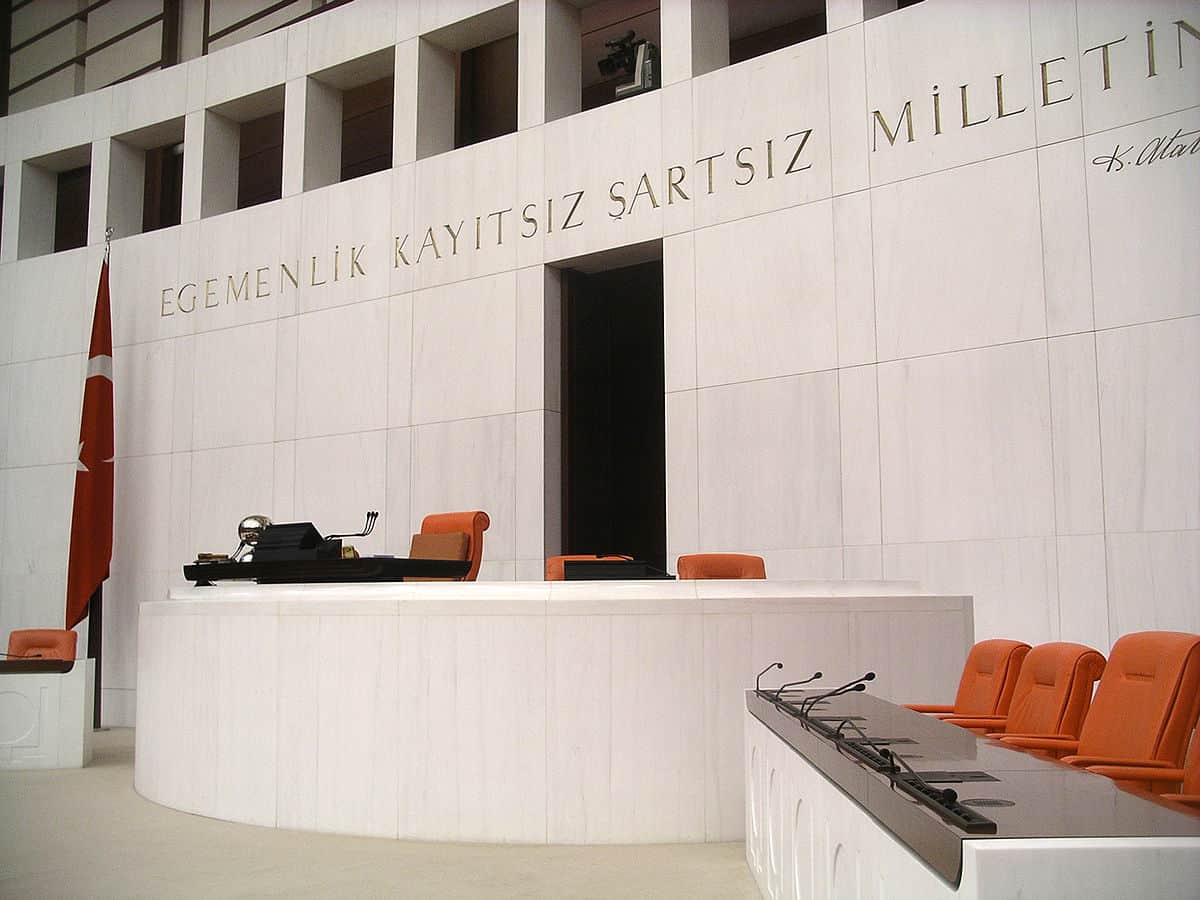Turkey marks the 100th anniversary of the foundation of its parliament through day-long events across the country, following social distancing rules due to the coronavirus.
The Grand National Assembly of Turkey is the supreme legislative body. Legislative power is vested in the Assembly and cannot be delegated to any other organ. It is a forum in which elected deputies represent the views and concerns of the people. Public matters are debated freely and publicly.
The Assembly has four main functions:
• Legislation (making laws): A law can only be made, amended or repealed by the Assembly.
• Representation: Elected deputies represent the nation. The nature of the representation is free representation.
• Scrutiny: The government is held responsible to the Assembly through questions, general debate, inquiry and investigation.
• Formation of the Government: Executive power is vested in the President of the Republic. The President of the Republic is elected directly by the public for five years. A person may be elected as the Prasident of the Republic for two terms at most.
Functions and activities of the Assembly are governed by the Constitution, laws and the Rules of Procedure.
PARLIAMENTARY ELECTIONS
The Grand National Assembly of Turkey shall be composed of six hundred (600) deputies directly elected from 81 provinces and 87 electoral districts in total. Parliamentary elections are held every four years.
Deputies are elected in general, direct, free, equal and secret voting using a system of proportional representation with a national threshold of 10%. Citizens over 18 years old have the right to vote in parliamentary elections. Anyone who wants to stand for parliamentary elections must be at least 18 years old.
HISTORY
The first parliament in the Ottoman history was realized by the 1876 Constitution. The Constitution provided constitutional monarchy in which the political power mainly vested in the Sultan and a bicameral Parliament composed of an elected Chamber of Deputies and an appointed Senate.
Members of the Senate were appointed by the Sultan for life among the prominent people over 40 years of age. The Chamber of Deputies was the first elected chamber in Ottoman history in which the members were elected for four years. Important amendments to the 1876 Constitution had been made in 1909 by which the Parliament’s administrative and legislative capacity had been extended.
While the Independence War was waging, Istanbul was invaded on March 16, 1920. Shortly thereafter, the Sultan dissolved the Parliament on April 2, 1920, after the Parliament had adjourned its proceedings. The dissolution of the Parliament opened the way for a new parliament in Anatolia. After the elections, the new parliament, consisting of members elected from the provinces and a group of members from the Chamber of Deputies, was opened on April 23, 1920 in Ankara.
Parliament, renewed in the middle of 1923, took the decision to make a new constitution at the beginning of 1924. The 1924 Constitution, the longest-living constitution in Turkish history, was implemented for 36 years and, to a large extent, conformed to the constitutional ideas prevalent at the time.
The 1961 Constitution set up a bicameral parliament. The main argument for the bicameral parliament was based on the argument that party politics due to strict party discipline resulted in a rigid and simple politics. Therefore a second chamber, elected by a different electoral system and representing different interests, would balance the negative effects of the party politics and would give a way to the political nuances/differences to be expressed in the Parliament.
A new constitution was drafted and was presented to the referendum on November 7, 1982. The greatest change brought about by the 1982 Constitution was the unicameral parliamentary system. The 1982 Constitution, from the time it was accepted until the present time, has undergone many amendments, especially with respect to the “integration laws,” which have been introduced within the framework of the European Union membership process, and which has led to a fundamental evolution. One of the most comprehensive amendment in the 1982 Constitution was made in 2017. With this amendment, Turkey passed to presidential system of government from parliamentary system of government. With elections held on 24 June 2018, the new system came into force in Turkey.
Source: ipex






